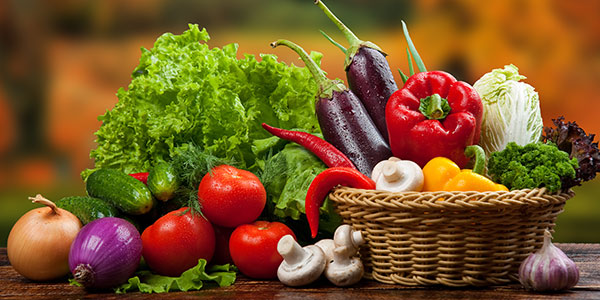
Healthy foods and weight loss are always hot topics. With health and nutrition-related materials relayed through social media and other outlets, trying to sift through the facts can be tough. "Gluten is the bad guy," "Healthy food is expensive," and "Detoxes are the only way to cleanse the body" are just a few of the nutrition misconceptions made and believed. Don't let erroneous information stand in the way between you and your healthy food goals.
1. Eating Healthy is Expensive
Resorting to the dollar menu and prepackaged processed foods gets more bang for the buck, right? Although those items are easy on the wallet, healthy foods can be too. When shopping for healthy food, look for sales or discounts on fresh produce, lean meats, and whole grains. Don't be nervous to choose generic brands since they are oftentimes identical to their name brand relative. Don't shy away from canned products, either, as they are typically under one dollar. To keep salt intake in check, rinse off canned bean and veggie products or be mindful of the nutrition label. A general guideline is less than 200 milligrams per one serving.
2. Finding and Preparing Healthy Food is Hard
When comparing to a quick drive-thru, yes preparing healthy food seems a little less convenient. However, a healthful diet can be easily achieved with simple tips. First and foremost, most fruits and vegetables need little to no preparation in their natural form. Vegetables can be chopped, seasoned, and oven-roasted with minimal effort. Add lean chicken breasts to the vegetable pan for a complete meal. Utilize the crockpot for a "throw and go" meal such as a lean beef and chopped onion and peppers for fresh fajitas. The options are endless with small effort and consistency!
3. Protein Holds the Key for Weight Loss
Eat protein and be a lean, mean muscle machine. Consuming protein can help aid in muscle gain and a trimmer waist line. However, "too much of a good thing" holds its own in this case. Weight gain can still occur if too much protein is consumed, as protein still has calories the body must burn. A long-term, high-protein can also be damaging to the body, especially to the kidneys.
4. Carbohydrates and Fats are Not Healthy
"Carbs" and "fats" are thought to be the epitome of unhealthy foods. But the truth of the matter is our bodies need both. Carbohydrates act as the main energy source for the body and fats help contribute to essential body processes such as protecting the body's organs and cells. Eventually, restricting the body of each can lead to more harm than good.
5. Sugar-Free Foods are Basically Calorie-Free
People often mistake "sugar-free" as "calorie-free." Although a sugar-free brownie may contain a little less calories compared to its sugary relative, fats are still used for texture and flavor enhancement. Sugar substitutes and sweeteners used in sugar-free products can lead to gastrointestinal discomfort like abdominal bloating, gas, and diarrhea. Alas, overindulging on sugar-free foods can still contribute to weight gain and frequent trips to the bathroom.
6. Going Gluten-Free is Healthy
Although those with Celiac disease or a gluten sensitivity or intolerance truly do need the elimination of gluten, others contribute a gluten-free diet to a more healthful diet. Common gluten-containing foods (wheat, barley, rye, and oats) are rich in B vitamins, folate, and iron. Realistically, the elimination of gluten can lead to nutritional deficiencies that can result in fatigue, anemia, and other symptoms and conditions.
7. Detoxes Will Provide the Body a New, Fresh Start
"Reset the body with detox juices and food." Though the appeal of cleanses intrigues several hopeful health-goers, detoxing through juicing lacks supporting scientific evidence. A general, healthy body already houses a powerful detox system. The kidneys, liver, and gastrointestinal system work together to filter and eliminate toxins and nutrients. Oftentimes, juices deprive the body of fiber and other nutrients it needs for optimal health and maintenance.






